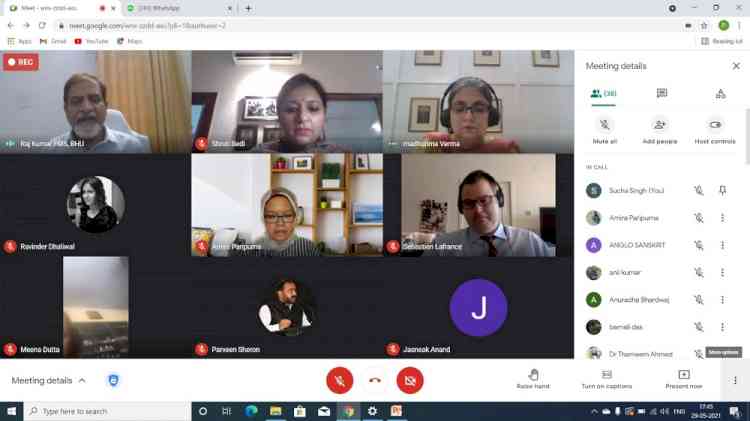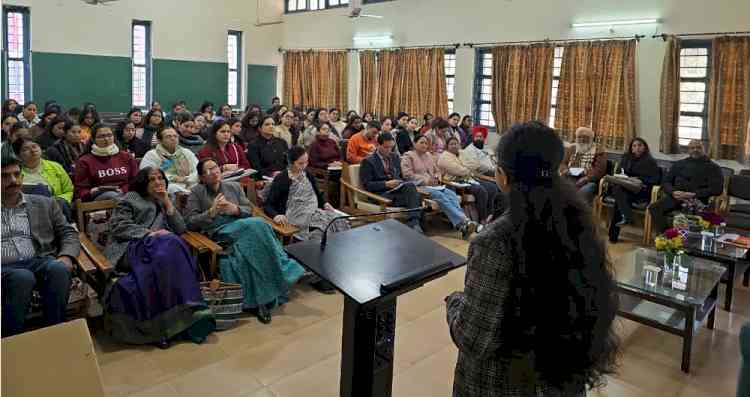Gender Sensitive Response to Covid-19: An International Webinar at USOL, PU
Gender was the key lens to look at issues affecting citizenry during the pandemic

Chandigarh:
University School of Open Learning, Panjab University Chandigarh, today, organized an International Webinar on the theme “Gender Sensitive Response to Covid-19: Best Practices”. This special event included the distinguished resource persons from Canada, Indonesia and India, who highlighted various provisions and initiatives taken by the respective countries to deal with challenges faced by people in general and women in particular. Gender was the key lens to look at issues affecting citizenry during the pandemic. Gender discrimination, domestic violence, sexual assault, psychological stress, trauma, loss of the jobs and many more serious issues were addressed by the speakers during the course of their deliberations.
Prof Raj Kumar, the Vice-Chancellor, in his opening remark, stressed on the need of converting the period of Covid-crisis into that of opportunities, establishing the connection with the scholars, experts, intellectuals through the immense reliance on technology. Prof Kumar also highlighted the very significance of the theme of the webinar.
An Indonesian Professor of Law, Dr Amira Paripurna, from the University of Airlangga, spoke on the gender-sensitive initiatives and provisions recoursed by the Government of Indonesia to address such issues as gender inequality and domestic violence during the covid. She also spoke on various grey areas such as gender blindness, the perpetuation of unequal gender norms and various redemptive initiatives undertaken by the NGOs and civil society to ameliorate the troubles and challenges posed by the Covid.
Mr. Sebastian LaFrance, a Crown Prosecutor Counsel from Canada, spoke on the condition of women and various issues connected with them, including their inferior status, womanly anatomical differences as the causes of various prejudices and discriminations, home not that safe place for women. Mr. Sebastian also disclosed that not many women centric initiatives were taken by the Canadian Government. He, however, conveyed that the Canadian courts take the issues affecting women very seriously once they are brought before them for the hearing.
Dr. Shruti Bedi, UILS spoke on special initiatives taken by the country to tackle the issues affecting Indian women.
The Chairperson of USOL, Prof Madhurima Verma expressed her utmost satisfaction at the successful completion of the fifty years of the USOL and its outstanding contribution in the field of open-distance teaching-learning. In conclusion, the vote of thanks was proposed by Dr Ravinder Kaur Dhaliwal, a faculty in English at USOL.


 cityairnews
cityairnews 









